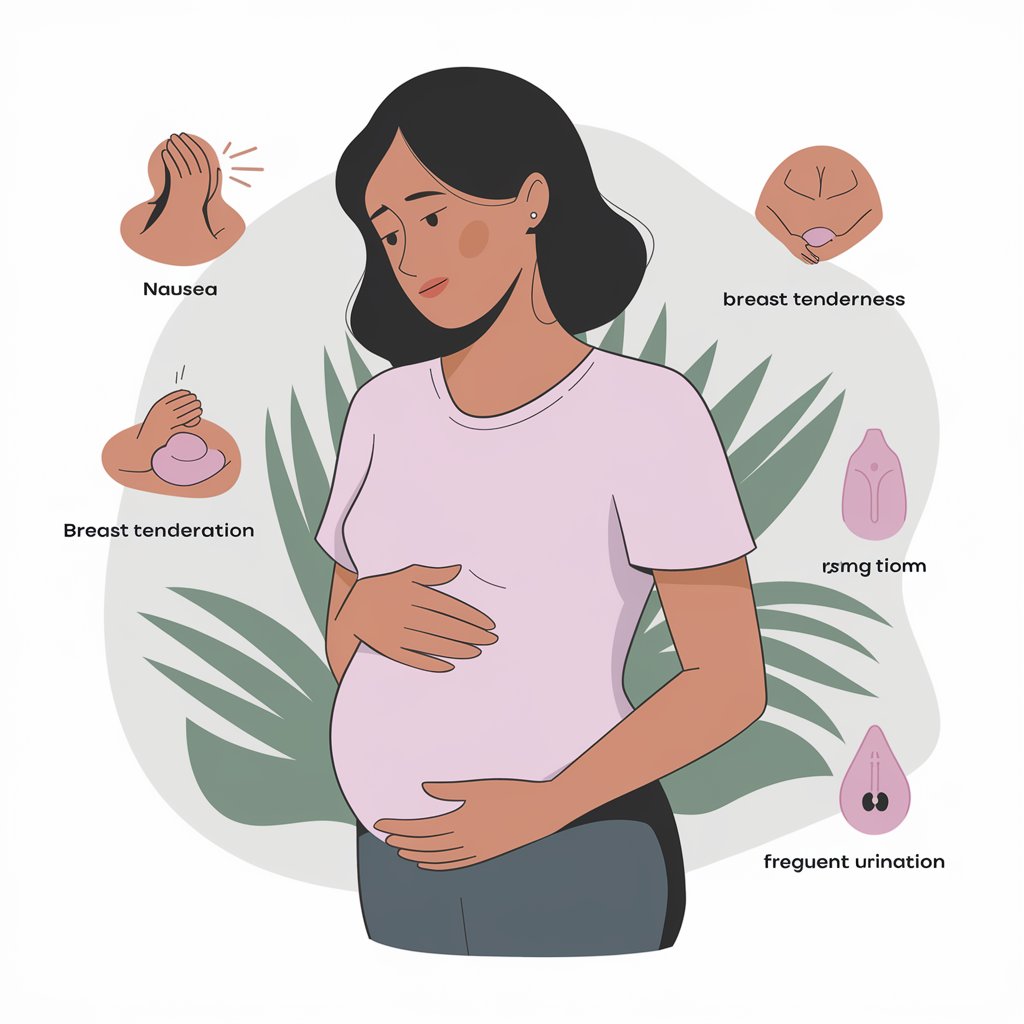When it comes to irregular periods and pregnancy symptoms, a missed period isn’t always a reliable indicator. However, there are other signs that may suggest you’re pregnant even if your cycle is unpredictable.
When you have regular menstrual cycles, one of the first signals that you might be pregnant is missing your period. For people with a 28-day cycle, menstruation typically arrives around 14 days after ovulation, so if it doesn’t, that’s often a cue to take a pregnancy test.
But what if your cycle isn’t regular? Around 25% of people in their reproductive years experience irregular periods, making it challenging to rely on a missed period to indicate pregnancy. Here’s how to identify irregular periods and pregnancy symptoms effectively.

What Are Irregular Periods?
Irregular periods refer to cycles that don’t follow a consistent schedule in either frequency or symptom intensity. Here are some indicators that your periods might be irregular:
- Cycles that occur less than 21 days apart or more than 35 days apart
- A wide variation in cycle length
- Periods that last longer than seven days
- Skipping multiple periods in a row
Additional symptoms of irregular periods can include:
- Heavy bleeding that requires changing a pad or tampon more than once an hour
- Intense cramping that affects your daily life
- Feeling faint, weak, or dizzy during or after menstruation
- Passing blood clots larger than a quarter
What Are the Causes of False Negative Pregnancy Tests and How to Avoid Them?
Important Terms To Know About Your Cycle
Irregular periods relate to the timing and duration of your cycle, while abnormal uterine bleeding (AUB) refers to problems with the amount of bleeding. Breakthrough bleeding (BTB), or metrorrhagia, describes bleeding between periods, while menorrhagia refers to heavy or prolonged periods, and menometrorrhagia combines both.
Causes of Irregular Periods
Whether you’ve always had irregular cycles or they’ve become irregular recently, there are several possible reasons. It’s also not unusual for your cycle to change temporarily due to factors like stress, illness, or travel. After giving birth or stopping birth control, your periods might also take time to regulate.
“If you miss a single period, check to make sure you’re not pregnant, then wait to see if your cycle normalizes the next month,” advises Dr. Suzanne Bovone, OB-GYN at Pediatrix Medical Group in San Jose, California.
However, if you miss two consecutive periods, or your periods suddenly become much heavier or last longer than usual, it’s important to consult your healthcare provider. It could be a sign of a new health condition or hormonal imbalance.
Here are other common causes of irregular periods:
- Polycystic ovary syndrome (PCOS): Those with PCOS may go long stretches without ovulating, resulting in fewer and heavier periods when they do occur.
- Weight fluctuations: Significant weight gain or loss can affect your menstrual cycle, as can eating disorders.
- Stress: Chronic or intense stress can lead to irregular periods.
- Excessive exercise: Intense physical activity can disrupt your cycle, signaling the need for more rest.
- Medications: Some medications, including blood thinners and anti-anxiety drugs, can cause cycle changes or spotting.
- Health conditions: Thyroid disorders or bleeding disorders like hemophilia can affect your period’s regularity.
- Uterine abnormalities: Growths such as polyps or fibroids can interfere with your cycle and ovulation patterns.
Why Irregular Periods Can Impact Pregnancy
If you’re trying to conceive, irregular periods can make the process more challenging. Abnormal cycles often signal larger health issues, and it’s important to see your doctor to determine the cause.
If you’re not ovulating regularly, it’s difficult to get pregnant. Ovulation, when an egg is released for fertilization, is essential for conception. Even if you do ovulate, irregular periods make it harder to predict your fertile window—the days leading up to ovulation when conception is most likely.
Signs of Pregnancy With Irregular Periods
Since a missed period isn’t always a reliable sign of pregnancy with irregular cycles, there are other symptoms to watch for:
- Nausea: About 70% of people experience nausea or occasional vomiting early in pregnancy.
- Fatigue: Feeling unusually tired can be an early pregnancy symptom.
- Breast tenderness or swelling: While this can also happen before a period, it’s worth noting alongside other symptoms.
- Spotting: Some people experience light bleeding or spotting when the embryo implants.
- Headaches: Hormonal changes in early pregnancy can trigger headaches.
- Food cravings or aversions: Sudden changes in appetite may be a clue.
- Mood swings: Emotional fluctuations can be another indicator.
- Frequent urination: Needing to pee more often is a common early pregnancy symptom.

What To Do About Irregular Periods if You Want To Get Pregnant
Your strategy for conceiving with irregular periods and pregnancy symptoms depends on the cause of your cycle inconsistency. If you’re ovulating but have longer-than-normal cycles, the approach may differ from that of someone who isn’t ovulating regularly.
Regardless, there are some best practices for conceiving with irregular periods:
- Eat a balanced diet and exercise regularly to support overall reproductive health.
- Track your cycles using a period-tracking app to help identify ovulation patterns, especially if your cycle is unpredictable.
- Use ovulation detection kits to pinpoint your fertile days and increase your chances of conceiving. These tests can also alert you to anovulatory cycles.
Ultimately, if you’re struggling with irregular periods and trying to conceive, it’s essential to seek guidance from a healthcare provider for a full evaluation.
“A comprehensive evaluation, including medical history, lab tests, and ultrasound, can help identify the cause of irregular periods,” says Dr. Bovone. “Sometimes no clear cause is found, but fertility specialists can still assist patients in achieving their pregnancy goals.”
Remember, every person’s cycle is unique, and getting personalized advice from a healthcare provider is the best way to address irregular periods or concerns about fertility.











1 thought on “Irregular periods and pregnancy symptoms”